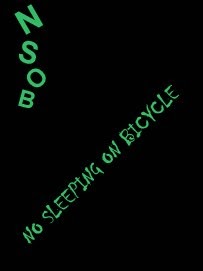Sunday, 6 May 2012
How we can accomplish Nigeria’s mission, by Wole Soyinka(1)
Do we need to point out that as a nation we are covered with shame that it took an external court of justice, of the former colonial masters, to finally put an end to the costly shenanigans of another of your former brother governors, one who held the forces of anti-corruption at bay, led them a merry dance all the way to Dubai until he was plucked out of his imagined sanctuary?
And what of that judge, the judge who freed him of over a hundred and fifty criminal charges here, in this very nation, pronounced him innocent of blasting the very future of the generations under his watch by a career of systematic, unconscionable robbery? Why are we surprised therefore to find ourselves faced with a future where all sense of community has all but evaporated and only predators roam the streets, making their own laws of survival as they proceed.
Yes, they make their own laws, for even these know that without law, written or unwritten, there is no community, and without community, all talk of nation is vain. Nations are built on the palpable operations of community, otherwise they are empty, artificial and hollow. They collapse with the tiniest pinpricksof unrest, they drift into oblivion with the slightest winds of external pressure.
So, that learned judge held the strings of community in his hands, the judge who pronounced our elusive governor free of all blemish, that custodian and administrator of justice, our question today is – ishe still passing judgment in this nation, or has he proceeded on retirement leave to Dubai?
Permit me to recall an exercise ina minor key in one’s seeming obsession with the future which,of course, I continue to see as the immutable responsibility of the present, otherwise, what is the present all about? In the early years of the return of the nation to civilian rule, I was invited to take part in a rather imaginative form of mentoring, initiated by a Japanese Televisionstation, loaded with the grandiose name – Super Teachers. It involved having a selected group of teachers – not necessarily teachers by profession – take a group of school pupils under their wing for a number of weeks.
Those teachers were selected on the basis of having attained some prominence in their disciplines. They were free to decide on a school, and from thatschool extract a class, or a group of pupils across classes, then expose them to aspects of their own calling. Science, technology, architecture, the performing arts etc – virtually all disciplines were represented, and the entire mentoring interaction was filmed.
What I privately relished in that project – this is just by the way – was that it enables me till today to boast that, for a few weeks at least, I was on the same payroll and salary as Bill Gates. I know that he would not have touched his honorarium – if at all they dared offer him such pittance.
However, as a man whose field isvirtual reality, he would be the first to concede to me when I claim that, virtually speaking, we were earning the same salary from a shared project! So much for vicarious living. The programme, I was about to elaborate, allowed for the pupils to be taken anywhere that related to, or could enhance the imparting of knowledge – withinthe station’s budget of course.
Thus, in the process of selecting a school, that school understood that it was obliged to release the pupils to accompany the mentor wherever – I recall that the American pupils were flown to some part of North Africa where the archeologist in the Super Teachers team was working on an excavation site.
In my own case, the producers agreed that I would travel with my students to other parts of thecountry – it was an opportunity to expose the pupils to the nation’s diversity – religion, culture, history, the arts – whatever came under the rubric of Humanities. Now, as It happened at the time, I had also received invitations from two or three legislative houses to address them, and so I seized theopportunity to induct my pupils into the work of law makers.
We began with Lagos where I off-loaded them on the public gallery of the House of Assembly. Afterwards, they were free to askquestions, make observations, and we would exchange views on their experience. I want you to listen carefully to the followingextract from my address to the Lagos House of assembly: “I invite you, honourable members, to look up at that gallery. You willobserve that you have some rather unusual visitors.
Subscribe to:
Posts (Atom)
